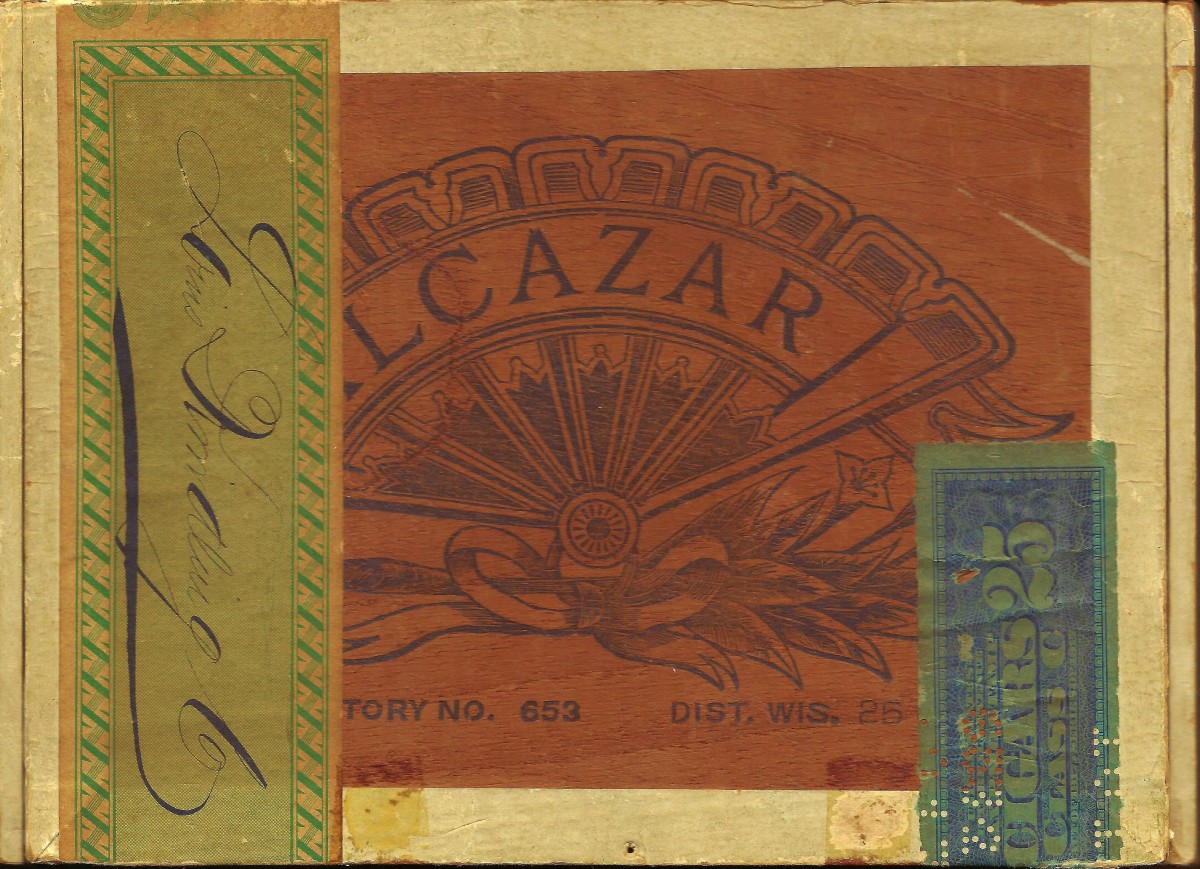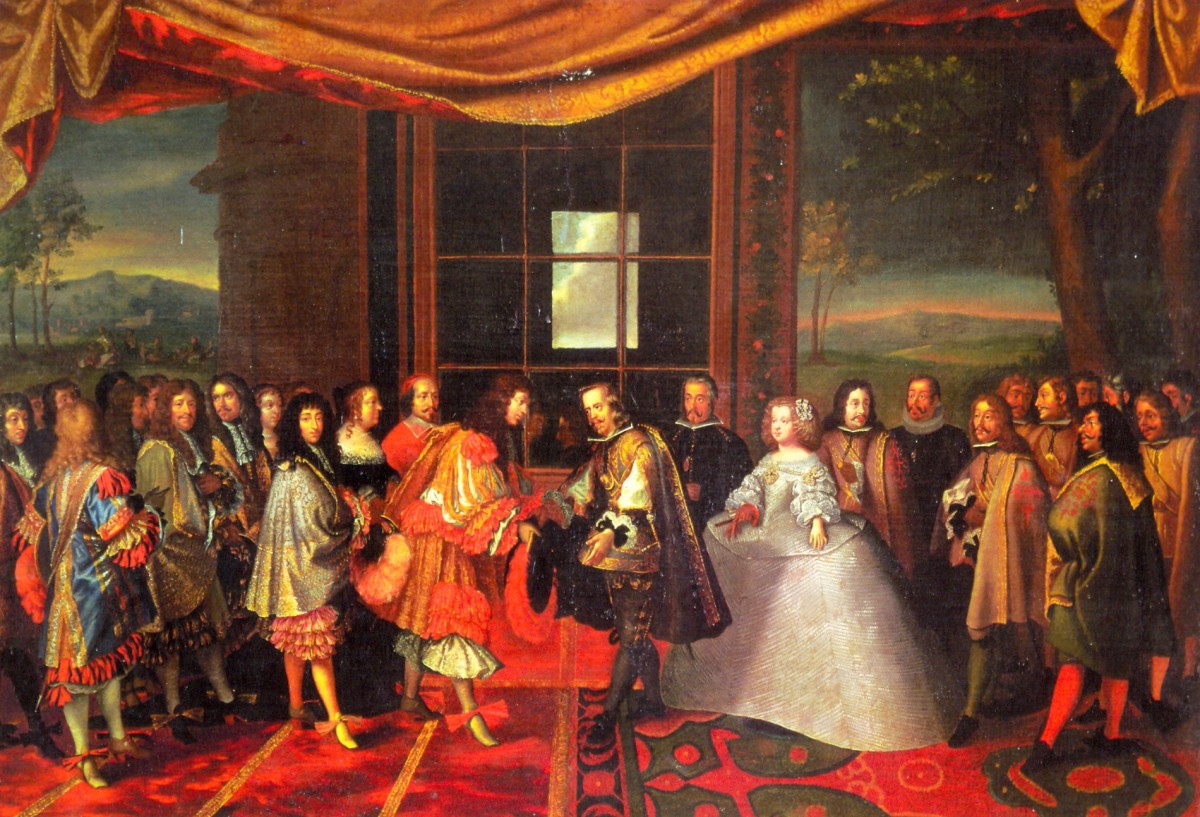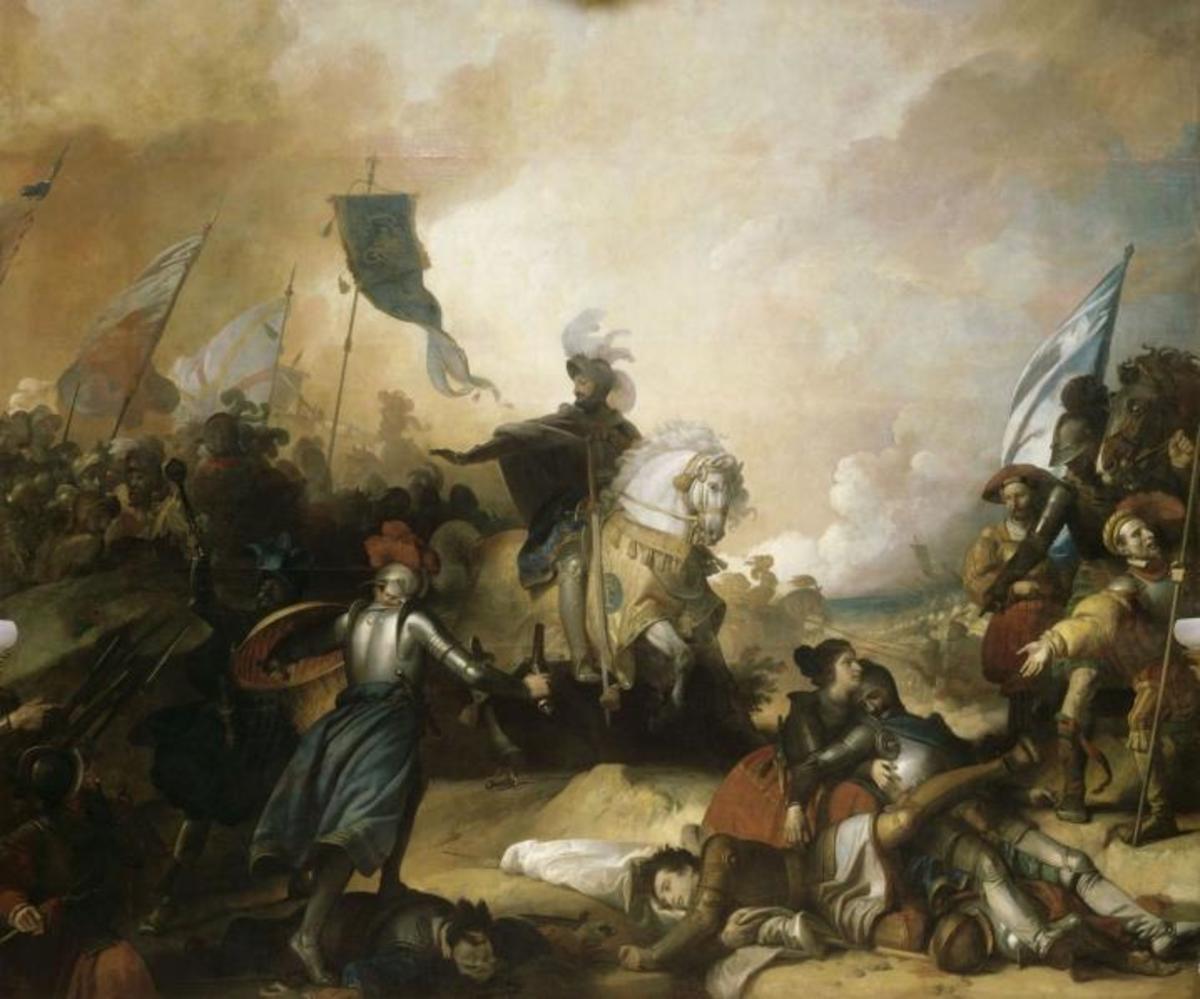Cardiff Union Workhouse Letters 2
The National Archives has uploaded a series of letters and documents relating to the Cardiff Union Workhouse. This is the second set of letters.
The following is a series of letters relating to the running of the workhouse. Two of them relate to the over crowding of the workhouse and the use of outdoor relief as an alternative. The other focuses on the Schoolmistress and her ability to teach the Catechism. The letters have been transcribed as closely as possible, using the spelling and punctuation found in the documents.
The following is a letter asking for outdoor relief for Mary Lewis, the reply written on the back of the letter suggests an issue with overcrowding leading to the agreement to outdoor relief.
Letter dated 18th February 1853
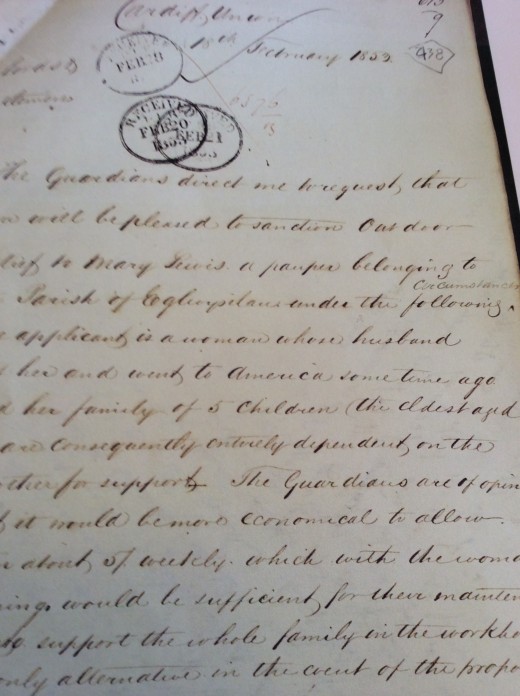
Cardiff Union
18th February 1853
My Lords &
Gentlemen
The guardians direct me to request, that you will be pleased to sanction Outdoor Relief to Mary Lewis a pauper belonging to the Parish of Egwysilan under the following circumstances, the applicant is a woman whose husband left her and went to America some time ago and her family of 5 children (the eldest aged 10.) and consequently entirely dependent on the mother for support. The Guardians are of opinion that it would be more economical to allow them about 57 weekly which with the woman’s earnings would be sufficient for their maintenance than to support the whole family in the workhouse the only alternative in the event of the proposed course being adopted.
I have the honor to be
My lords and gentlemen
Your very dedicated servant
T.W.Watkins
Clerk
The note on the back of the letter suggests that the union does not need the permission of the Poor Law Board and will agree to the request, although it is suggested that Mary Lewis' situation is not what is being reported.
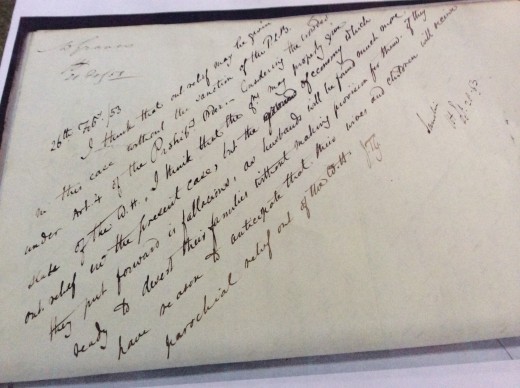
The Reply/Comment Written on the Back
26th Feb /53
I think that out. Relief may be given
in this case without the sanction of the P.L.B.
under Art. 4 of the Parish Order.- considering the crowded
state of the W. H, I think that the gn. May properly give
out. Relief in the present case, but the xxxx of economy which
they put forward is fallacious, as husbands will be found much more
ready to desert their families without making provision for them. If they
have reason to anticipate that their wives and children will receive
parochial relief out of the W.H.
J.T.G
The following is a letter requesting if the School Mistress will teach the Catechism to the pupils presumably of Catholic Faith.
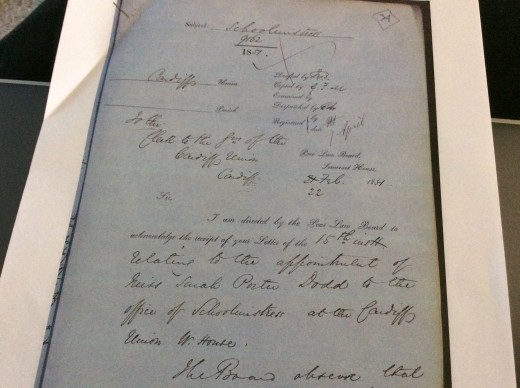
School Mistress
To the
Clerk to the gns of the
Cardiff Union
Cardiff
Poor Law Board,
Somerset House
22 Feb 1854
Sir,
I am directed by the Poor Law Board to
acknowledge the receipt of your letter of the. 15th last
relating to the appointment of
Miss Sarah Porter Dodd to the
office of Schoolmistress at the Cardiff
Union W. House.
The Board observe that
it is stated in the form
of queries which you return, that
the religious Persuasion of Miss
Dodd is that of a
Baptist, and they request therefore
that you will inform them
whether Miss Dodd will
teach the Church Catechism to
those children in the W. H. who
may belong to the Established
Church.
The following is a letter sent to the Poor Law Board against the separation of the town and country parishes. It describes the town of Cardiff and the impacts transient workers have on its Union.
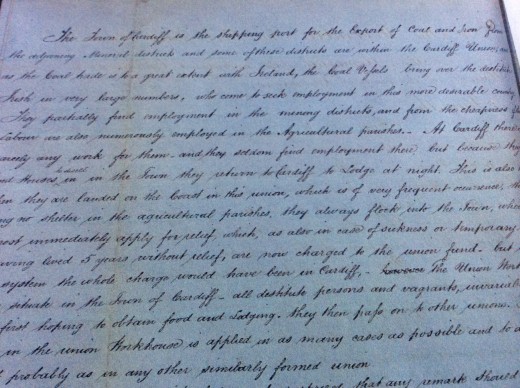
The town of Cardiff is the shipping port for the Export of Coal and Iron from the adjoining mineral districts and some of these districts are within the Cardiff Union, and as the coal trade is to a great extent with Ireland, the Coal vessels bring over the destitute Irish in very large numbers, who come to seek employment in this more desirable country. They partially find employment in the mining districts, and from the cheapness of the labour are also numerously employed in the agricultural parishes. At Cardiff there is scarcely any work for them – and they seldom find employment there, but because they find houses to dwell in in the town they return to Cardiff to lodge at night.
This is also the time when they are landed on the coast in this union, which is of very frequent occurrence, there being no shelter in the agricultural parishes, they always flock into the Town where they almost immediately apply for relief, which, as also is the case of sickness or temporary illness or having lived 5 years without relief are now charged to the union fund – but under the old system the whole charge would have been in Cardiff,- The Union Workhouse being situate in the town of Cardiff – all destitute persons and vagrants, invariably come there, first hoping to obtain food and lodging. They then pass on to the other unions. The test of work in the union workhouse is applied an as many cases as possible and so as great an extent probably as in any other similarly formed union.
Your memorialists felt much surprised that any remark should have been made respecting the expenses attending that most awful visitation of providence, the Cholera with which the town of Cardiff was lately afflicted and in which they lost about 1 in ? of their population. – or that a case, should be endeavored to be established from it for a separation of the union. The expenses incurred those not of Cardiff only, but of some the other parishes, however will not amount to the sum mentioned. They were chiefly incurred by recommendation of Dr Lutherland, the Government Inspector under the Board of Health, in the section of a large wooden house for the reception of persons whose houses cholera was raging – and when the materials of which this house inspected and sold, it is confidently expected that a large sum will be repaid to the Union.
Although the union may be of the extent mentioned from its extreme points from North to South, yet Cardiff from its peculiar situation and accessible Railroad and otherwise is the most central situation for the population and the town to which most of the inhabitants resort.
Almost all the distant portions being purely agricultural and thereby populated your memorialists cannot conceive how the connection of the town of Cardiff with the rural districts can in any manner be detrimental for the proper managemement of the union, They believe that under excellent xxxxxxx of our union workhouse, the great case taken of the inmates, the number of guardians whose duty it is to visit and inspect it, that a most decided advantage is gained. Xx our only desire is that we many be enabled to remove the children for a separate establishment. We also respectfully request your attention to the table No 3 which shows the whole of the children in the workhouse do not amount to anything near the number stated in the memorial of the Guardians to belong at Cardiff.
Your Memorialists wish to bring under your notice that xxxx of the memorial I adopted as before stated by the union without giving an opportunity to examine or explain its allegations, regarding the number of medical cases belonging to the town of Cardiff. The large number of cases as reported belonging to Cardiff was because the Union Workhouse is situate within the Town, and whenever sickness is reported, either in an individual or other members of the family – it has been considered to the advantage of those afflicted they should be removed to the Union House for the benefit of regular and proper diet and more direct inspection of the medical office of the establishment. In the majority of cases their stay in the House is very short and many of the cases are only vagrants or casual poor, in what manner it can be detrimental to the union we cannot imagine especially as at the time stated we believe they were changeable to Cardiff – In country parishes where the sickness is not of a serious character it has been usual to make them an extra allowance and to be under the care of the medical officer of the district.
In regard to the number of adults in the workhouse chargeable to Cardiff as mentioned in the memorial they beg to refer you to the table No 2. By which you receive why the statements were made for the Quarter ending March 1848 and not for the current year, besides, at the time stated the adults changed as Cardiff paupers included Vagrants which amount to more than half the number and the cost of the maintenance of 436 as per table No 2 (as they scarcely ever partake of more than one meal) amounted to only 5.18.1 yet their number would make it appear that greater expenses were required for their care. And had it been so, their cost at the time taken we believe would have been charged to Cardiff and not to the Union.
In conclusion, whilst your Memorialists deeply lament the present uncalled movement for a separation of the Union – a separation that would inflict in various ways the deepest injury upon the poor, and be a permanent loss to both the commercial and agricultural interests of this county – interests, which in this kingdom never can be, and never ought to be separated – the separation too of a union which has in all respects worked as well, as economically and at the same time as mercifully as any union in the kingdom – whilst they lament this movement in the wrong way, they beg to add one return as showing the exact state of the union workhouse in that respect at the very moment when an attempt was being made to divide its interests upon facts and figures which existed only nearly two years before.
Children in the house December 25th 1849. 125
Chargeable to Cardiff 59
Country Parishes 43
Union Fund 23
And your Memorialists would respectfully suggest that an assistant commissioner should be sent down to examine and report on the present working of the Union
January 10 1849
Table 1 Shows the Population of Each Parish
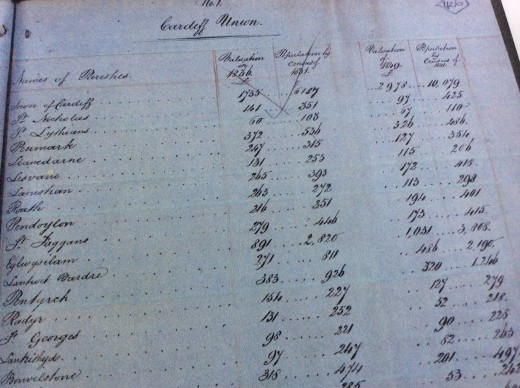
Table 2
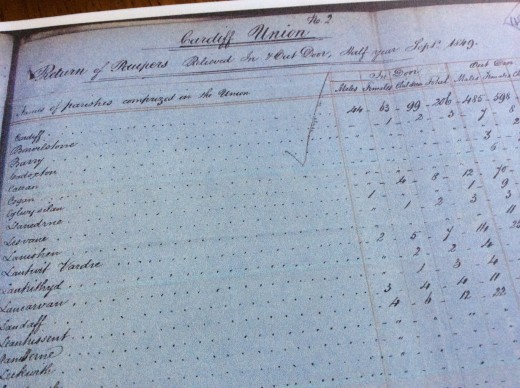
Table 2
Table 2 refers to the numbers of paupers receiving indoor and outdoor relief in the half year ending September 1849. The columns are divided into male, female, children and totals for both indoor and outdoor for each parish in the Union.
The conclusion of the report is as follows -
Total number relieved Indoor .........1012
Total number relieved Outdoor . . . .3640 Including 436 Vagrants
Cost of In Door Maintenance for the Half year ending September 1849
Cardiff . . . . . . 233 pounds . . 5 shillings and 1pence
Country Parishes . . . . .197 pounds . . .12 shillings and 9 pence
This illustrates that the Outdoor Relief was the prominent way to support paupers at this time.
Table 3
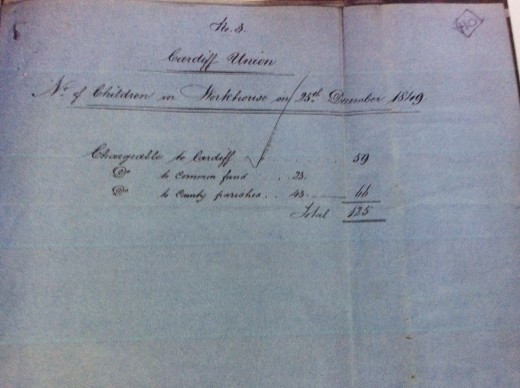
No 3
No.3
Cardiff Union
No. of Children in Workhouse on 25th December 1949
Chargeable to Cardiff . . . . . . . . .59
to common fund . . .23
to country parishes . 43 . . . . . .66
. . . . . . . . . . . . . . . . . .. Total 125


